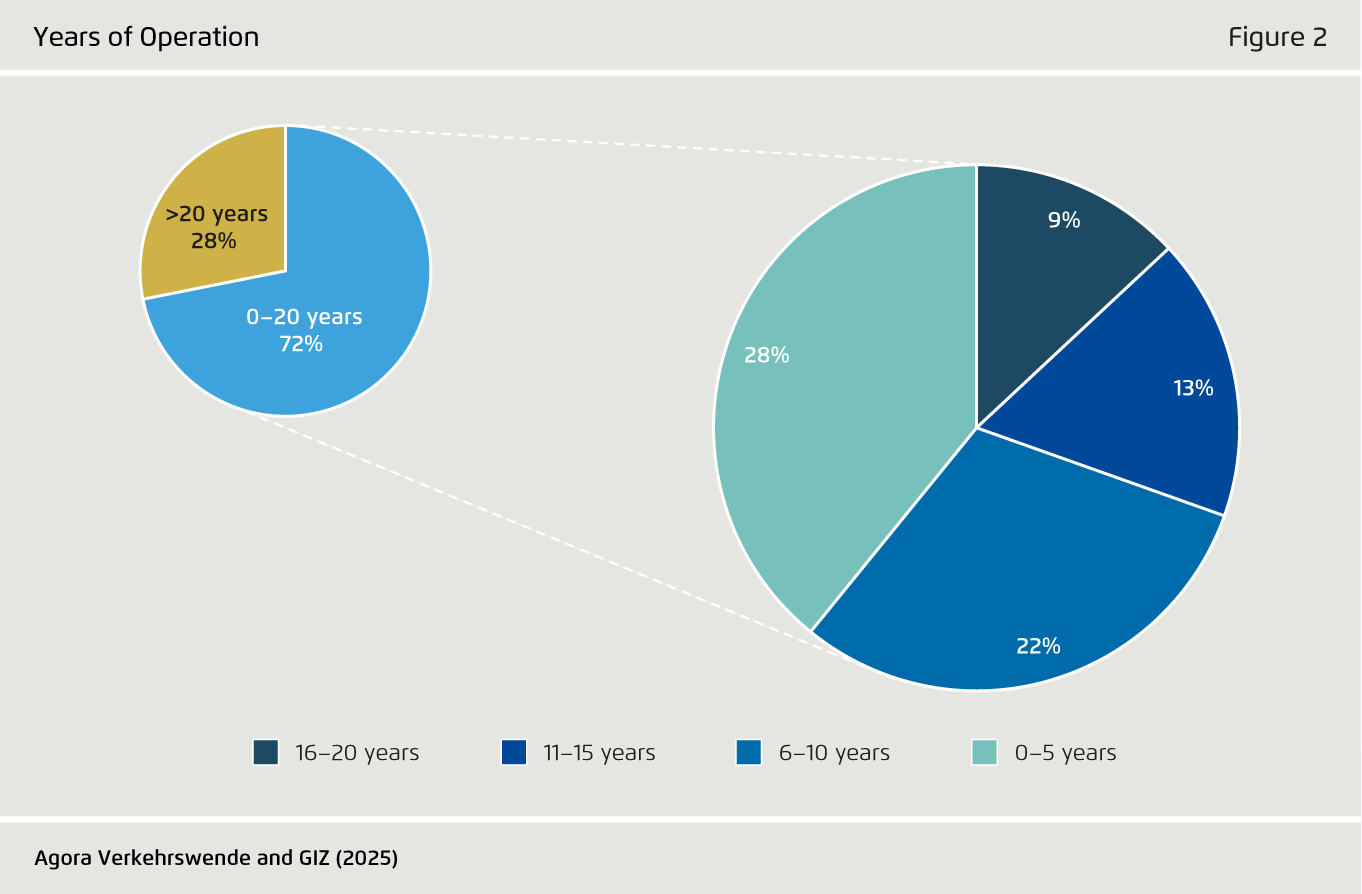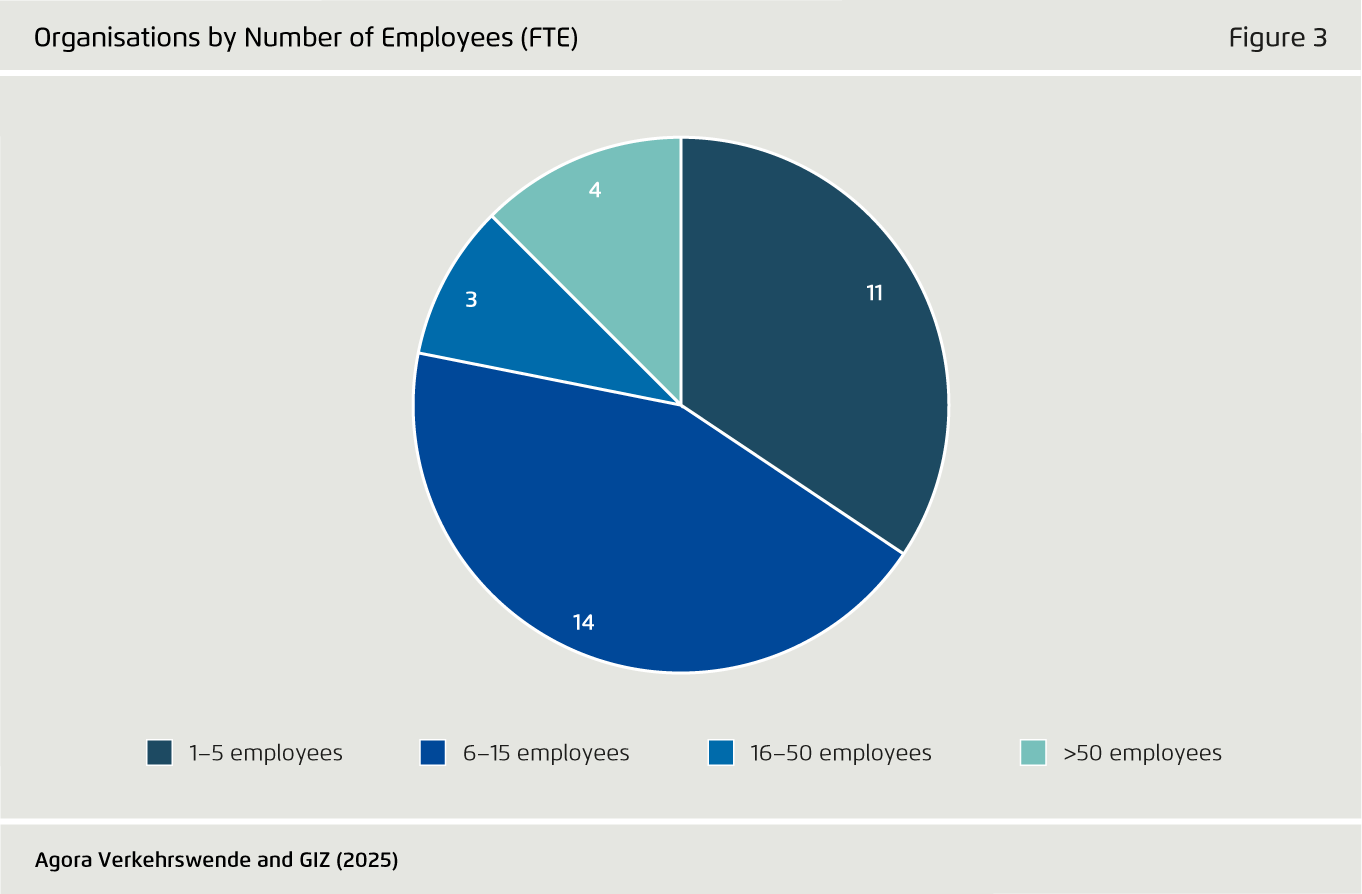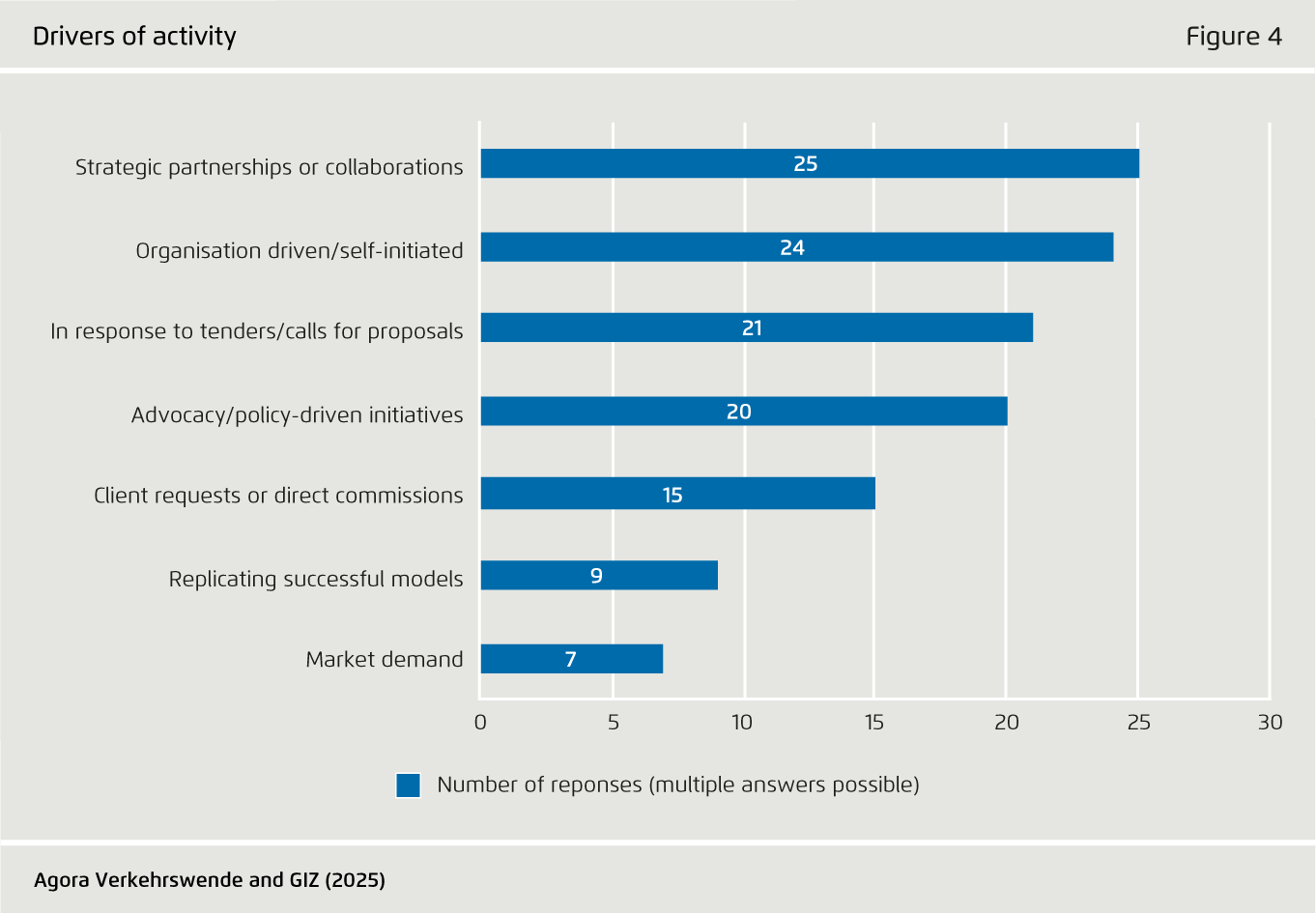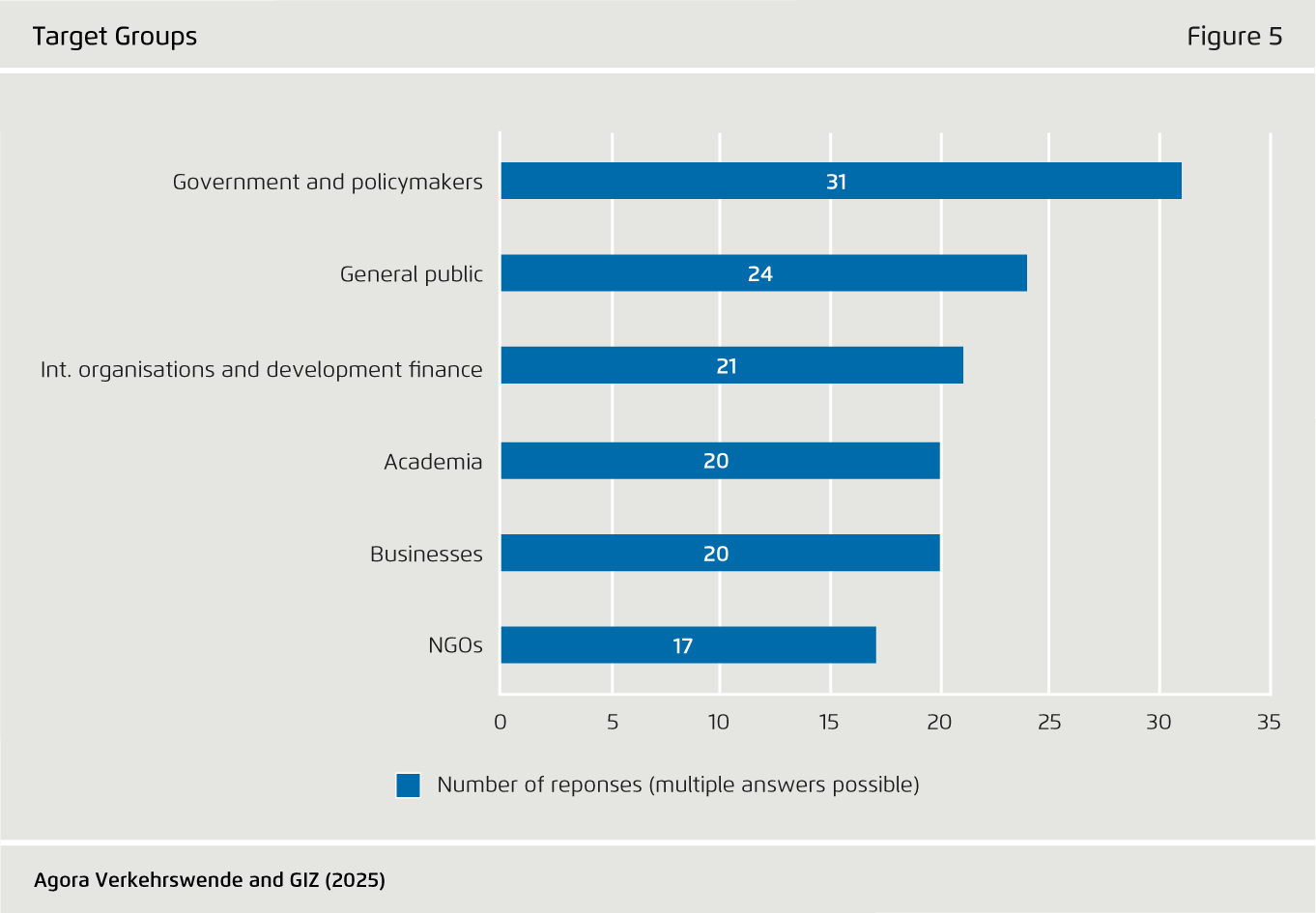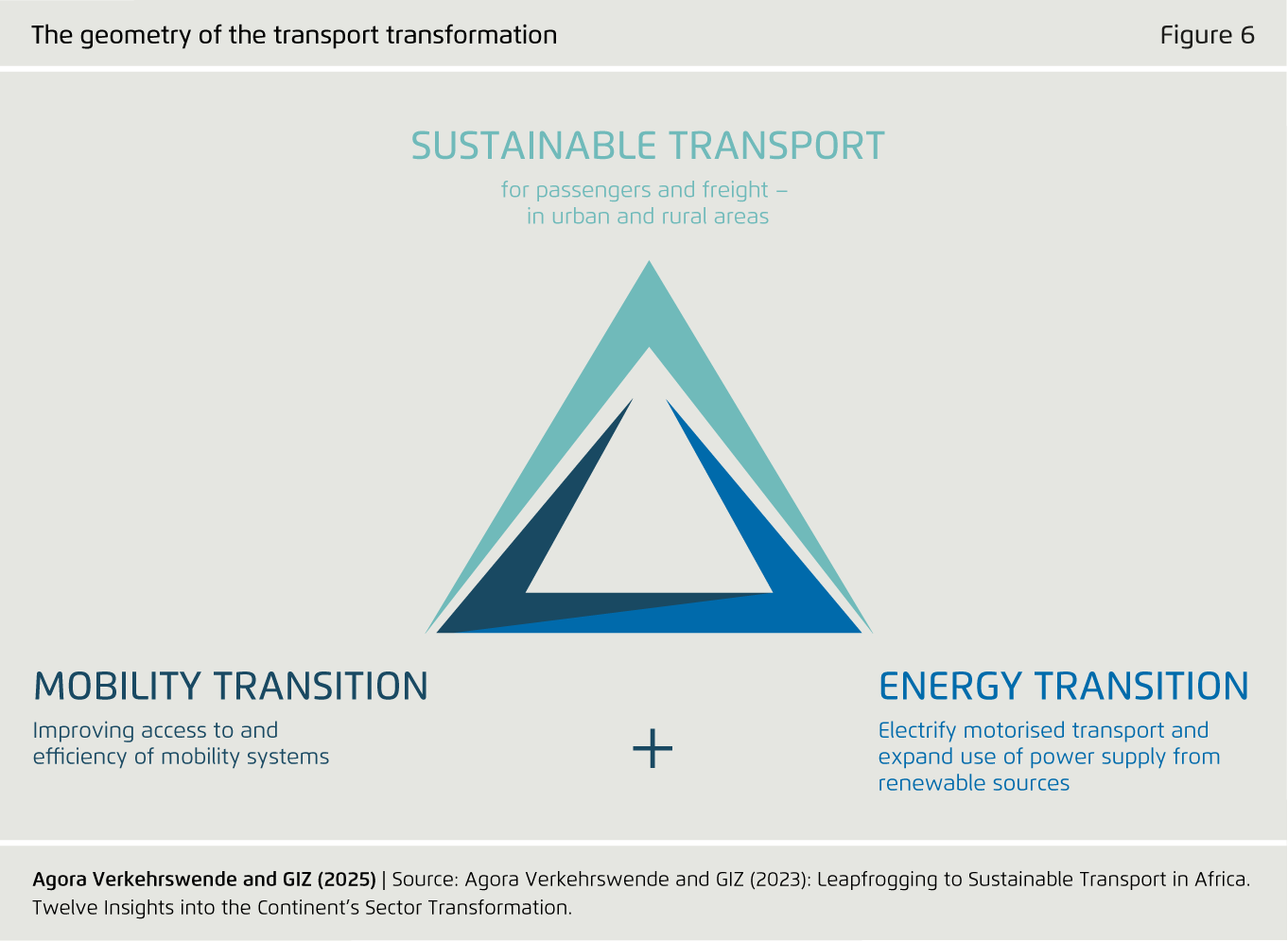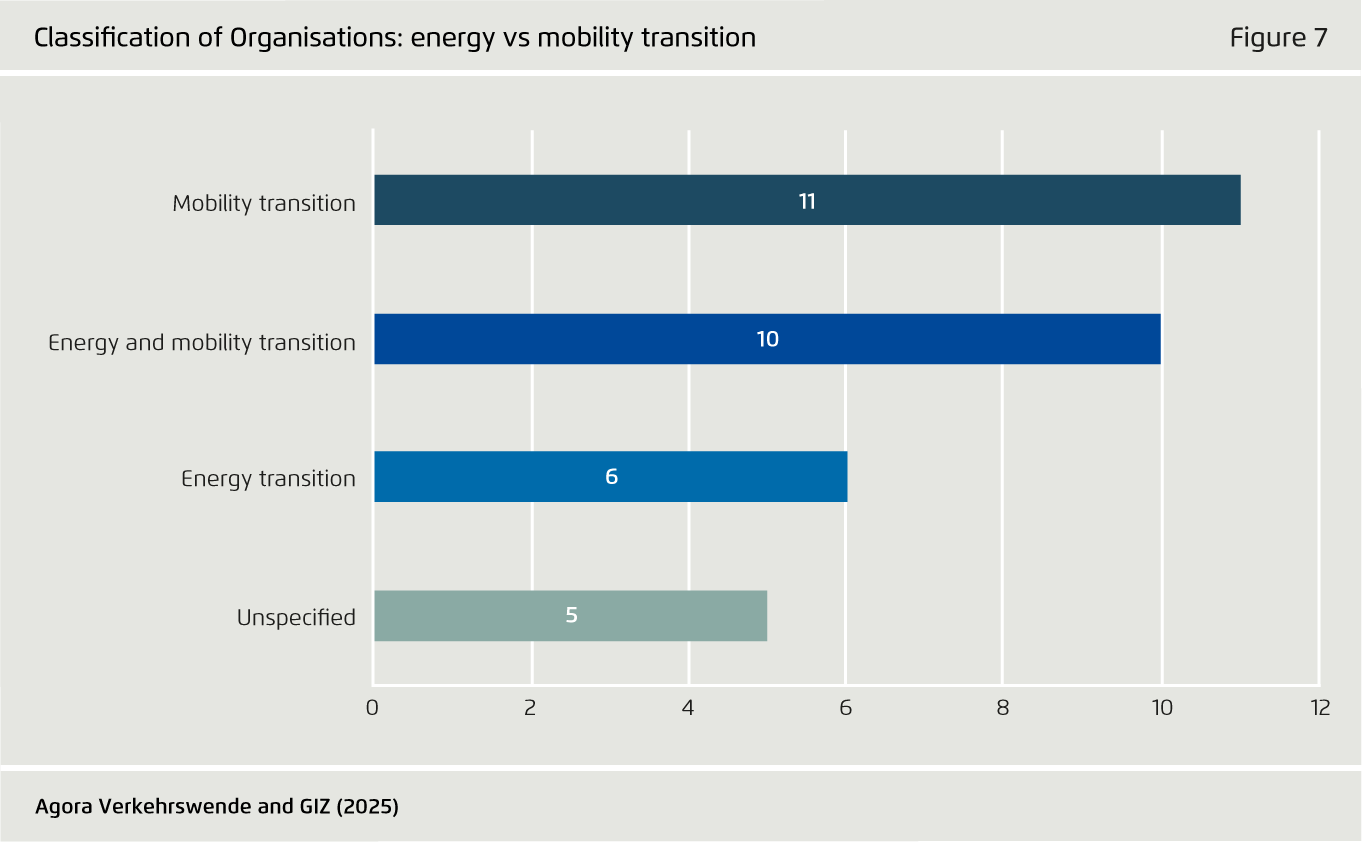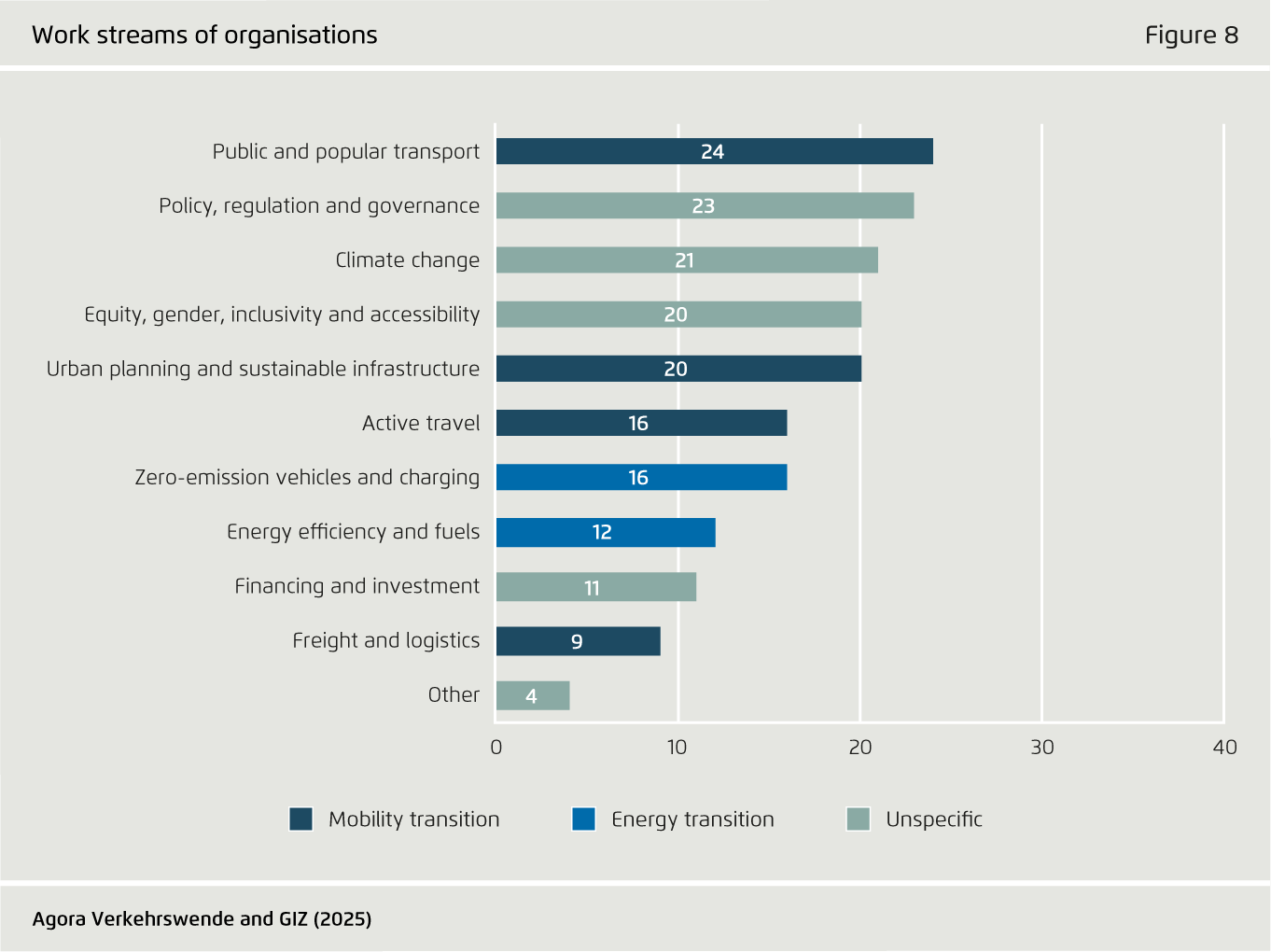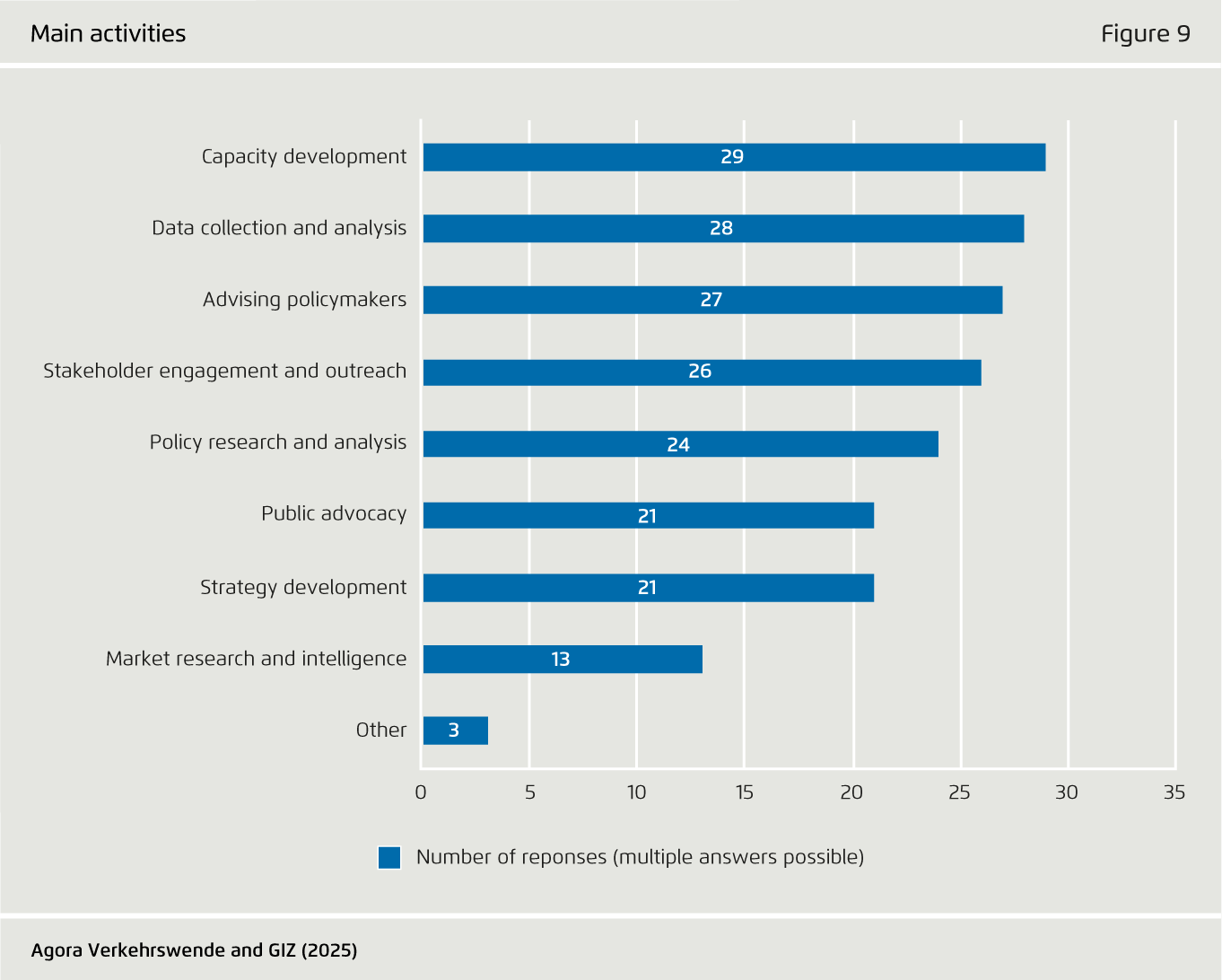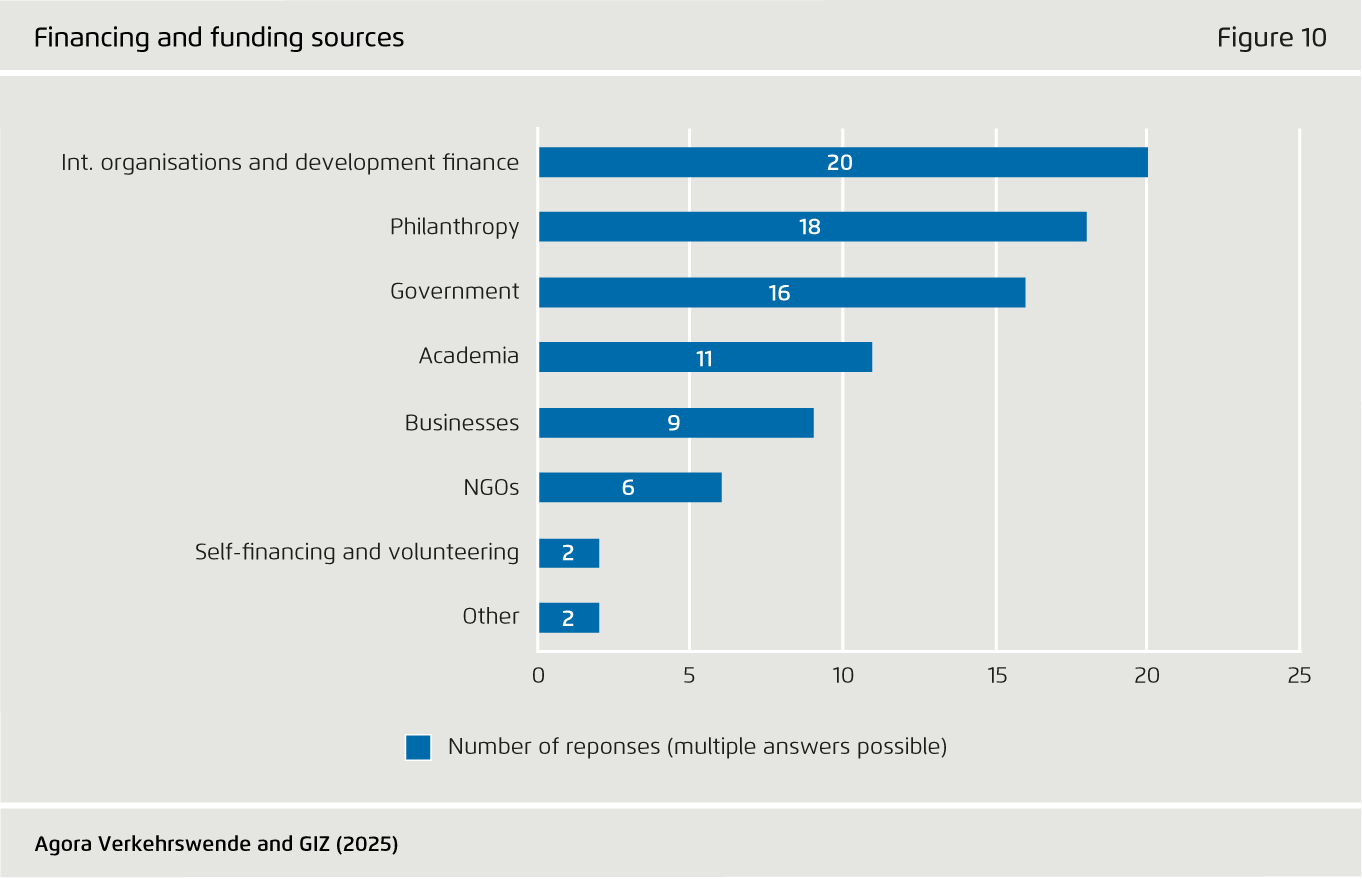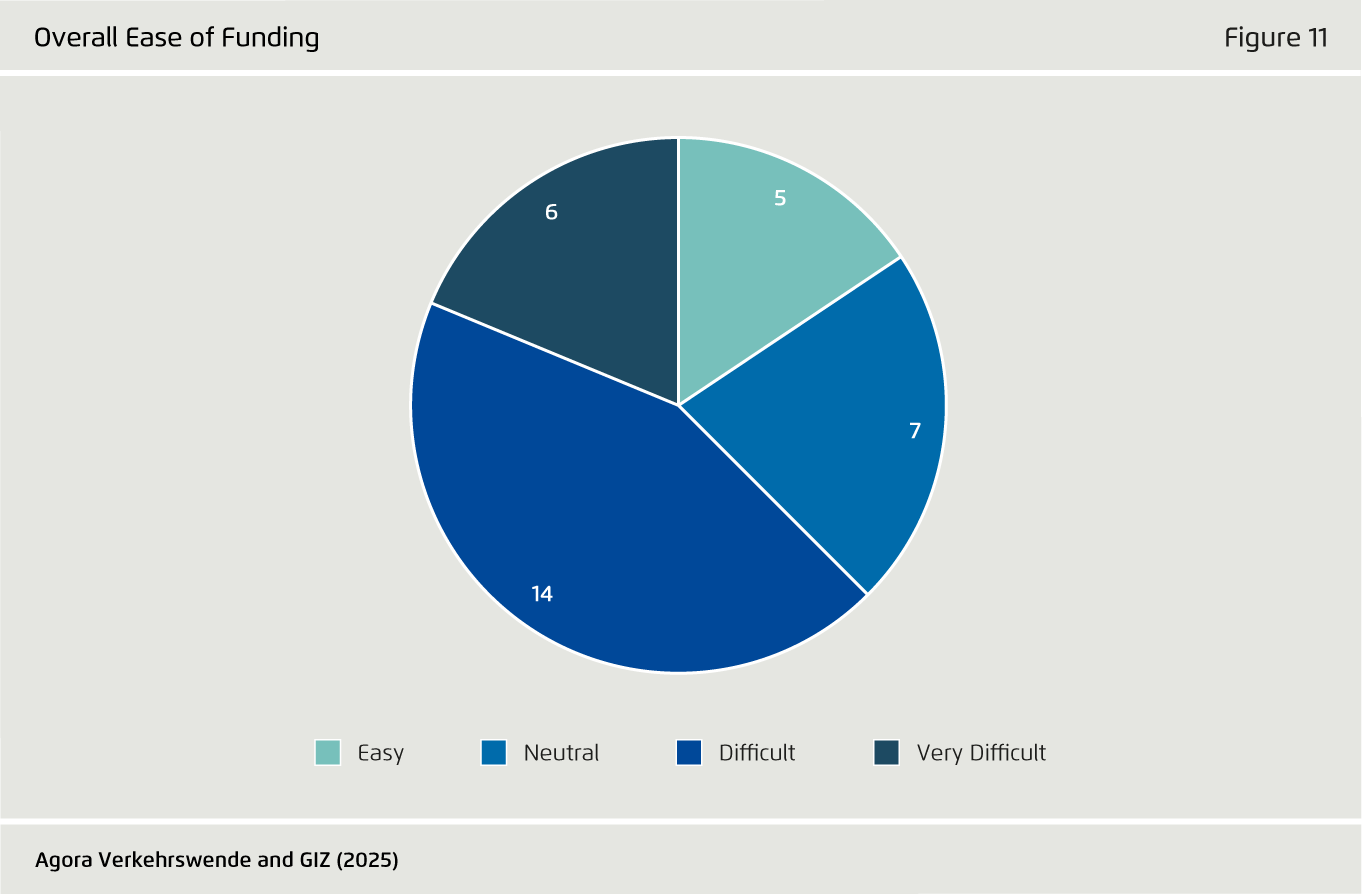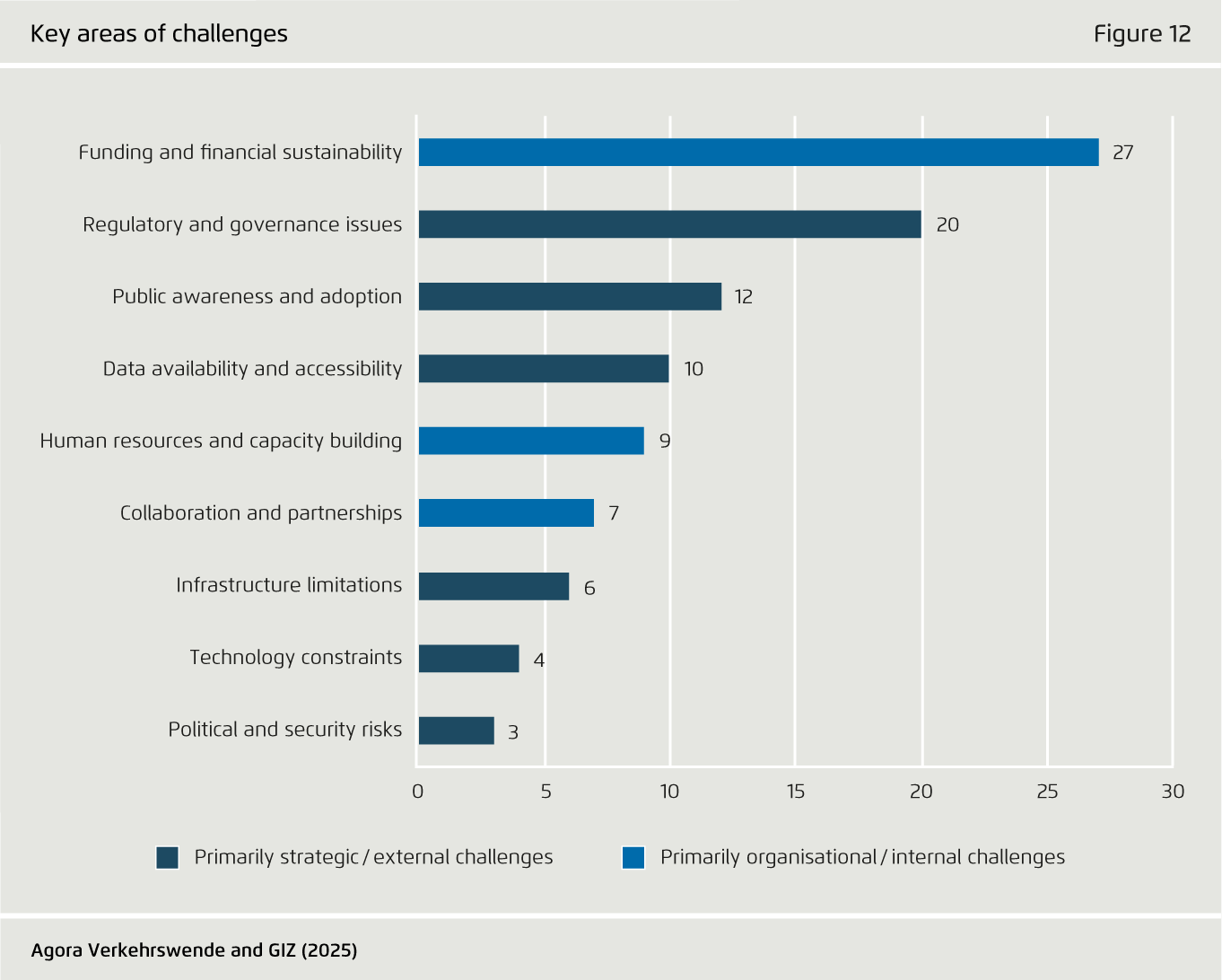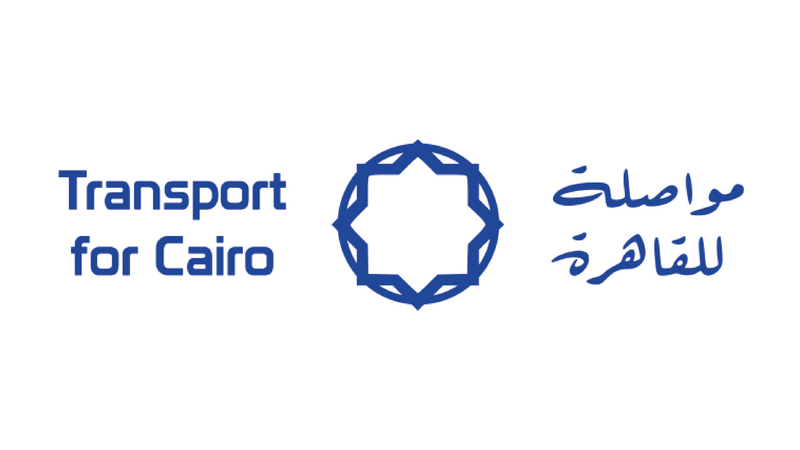-
The landscape of organisations working towards sustainable transport policy across Africa is evolving fast.
Half the surveyed organisations were founded within the past ten years and almost three-quarters within the past 20 years. The ecosystem is diverse, comprising NGOs, academia, government-affiliated institutions and for-profit organisations. Southern Africa hosts more than a third of the organisations (eight of these are in South Africa), followed by Eastern (mostly in Kenya) and Western Africa (mostly in Nigeria and Côte d’Ivoire), which host around a quarter of the organisations, respectively.
-
While many organisations work on both the mobility and energy transition in transport, the majority are focused on the mobility transition.
Approximately one-third of organisations are working on both the energy and mobility transition in transport, i.e., looking at the accessibility of shared and active modes of transport as well as the electrification and energy transition in transport. Amongst the organisations specialising in one pillar, almost twice as many focus on the mobility transition than on the energy transition.
-
Funding is a global barrier to the growth and impact of organisations.
One of the most critical challenges for organisations is financial stability, a longstanding global issue across the sector in many countries. Limited and unstable funding hinders organisations’ long-term strategic planning, talent retention and effectiveness. Almost two-thirds of organisations depend mainly on international funders such as development banks and philanthropies for their funding, and this presents an untapped opportunity for leveraging domestic and continental philanthropies and funders to prioritise organisations working in the field of sustainable transport policy.
-
National governments are regarded as central actors for action to take place.
Government stakeholders are considered the primary target of engagement by nearly all organisations, with only one exception. Organisations aim to support policy development and reform, positioning themselves as partners in the public-led transformation of transport systems. Only about half of the organisations receive any funding from national governments. Still, governments are their main target audience. Since most organisations do not rely on government funding, this shows that they remain relatively independent.
-
Collaboration through community building across African countries can enhance impact.
All organisations emphasised the importance of partnerships. The main drivers for collaborations include creating synergies between work programmes, combining complementary skillsets for joint projects and facilitating knowledge exchange. Partnerships with international organisations are particularly valued as they raise the profile of local actors. At the same time, organisations face challenges in engaging decision-makers and establishing long-term collaborations. Strengthening connections between organisations themselves and with potential funders, through initiatives such as a community platform for sustainable transport organisations in Africa, could amplify their collective voice, foster knowledge sharing and enhance regional coordination across the continent.
Joining knowledge forces for sustainable transport policies in Africa
An initial stocktake of think tanks, NGOs and academic institutions from across the continent

Preface
This report Joining knowledge forces for sustainable transport policies in Africa provides insights on the landscape of organisations working in the field of sustainable transport policy in Africa. Based on a survey conducted in the spring of 2025, we analysed responses from 32 organisations from 12 countries across Africa. These organisations play a key role as knowledge intermediaries in supporting policy development, capacity building, promoting awareness and creating ownership in the transformation to climate-neutral and more accessible transport systems.
Today, African countries have some of the world’s lowest motorisation rates, averaging only 43 vehicles per 1 000 people. However, by 2050, the continent is projected to host a growing middle-income class three times larger than that of today, the world’s youngest population with a median age of 19 and one quarter of the global population. Africa’s mobility needs will increase with economic growth, and motorisation is predicted to rise as well. While this trend may be unavoidable, decoupling motorisation from rising CO2 emissions and resulting climate impacts is essential to secure sustainable socio-economic development. In this context, African countries can leapfrog directly to zero-emission mobility, led by the electrification of public transport including motorbikes, buses and later by private vehicles, while also improving public transport services and expanding infrastructure for shared and active modes of transport. This enormous challenge calls for a new approach: it requires immense investment, yet fiscal resources are limited, and funding through international cooperation is on the decline. To bridge this gap, African countries can create favourable conditions for attracting investment in sustainable transport by ensuring long-term policy planning and viable financing conditions. Organisations engaged in sustainable transport policy research, such as think tanks, NGOs and academic centres of excellence, play a crucial role in supporting decision-makers with evidence-based policy recommendations to create these conditions.
The landscape of organisations working in sustainable transport policy in Africa is new and expanding, with most organisations established less than 20 years ago. There is more attention given to the mobility transition in transport (access to shared and active modes of transport) than on the energy transition (electrification and decarbonised energy supply). Organisations address mobility across different modes, often integrating walking and cycling as first and last-mile solutions for popular and formal public transport. Most organisations direct their work towards government actors and policymakers as their primary beneficiaries and target group. These efforts are largely sustained through support from international cooperation actors, which provide both funding and strategic collaboration. The most significant challenge organisations face is financial stability, which limits their ability to make long-term plans, retain staff and expand their activities.
Closely tied to this is the challenge to establish and sustain meaningful cooperation partnerships, which are important for improving access to both technical and financial support. Organisations across the board highlight the importance of these. At the same time, more can be done to promote cooperation and knowledge exchange between organisations in different African countries. In this first edition, discourse on the need for an African community of organisations for sustainable transport through policy is one step closer to this goal.
Key findings
Bibliographical data
Downloads
-
Analysis
pdf 2 MB
Joining knowledge forces for sustainable transport policies in Africa
An initial stocktake of think tanks, NGOs and academic institutions from across the continent
All figures in this publication
Distribution of surveyed organisations
Figure 1 from Joining knowledge forces for sustainable transport policies in Africa on page 8
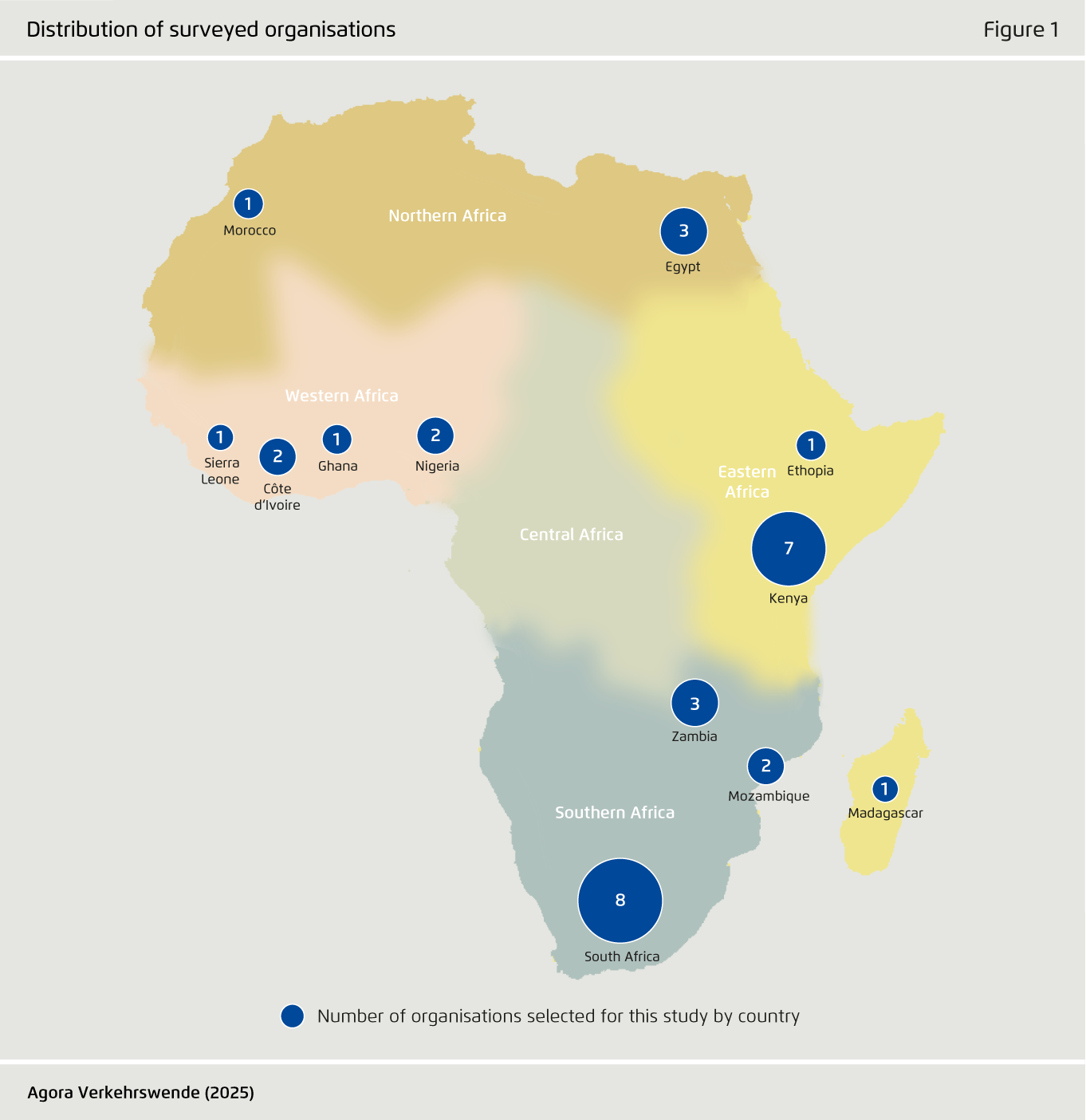
Years of Operation
Figure 2 from Joining knowledge forces for sustainable transport policies in Africa on page 11
